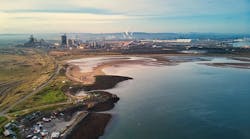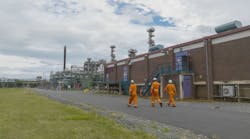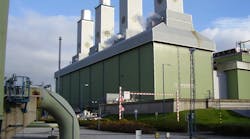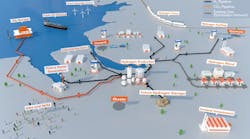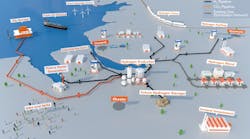Eni given go-ahead for Liverpool Bay CO2 storage project, with UK government subsidy
Eni has achieved financial closure for its Liverpool Bay Carbon Capture and Storage (CCS) project offshore North Wales/northwest England with the UK government’s Department of Energy Security and Net Zero (DESNZ).
The Liverpool Bay CCS project is the CO2 transport and storage system for the local onshore HyNet industrial cluster.
The project is now cleared to proceed into the construction phase, with awards of supply chain contracts, most of which are set to be issued locally. Eni expects the construction program to create jobs for about 2,000 people.
Previously, the government had announced a funding allocation of £21.7 billion ($28.9 billion) over a 25-year period for the UK’s first two CCS cluster developments.
The Liverpool Bay CCS project will transport CO2 from dedicated capture plants across the northwest and North Wales through new and repurposed pipeline infrastructure for permanent storage in depleted natural gas reservoirs operated by Eni beneath the seabed, 20 km offshore in Liverpool Bay.
A new offshore platform will be installed at the Douglas field to receive CO2 from the Point of Ayr Gas Terminal in Flintshire, North Wales. From there, the CO2 will be transported to and injected into the depleted offshore Hamilton, Hamilton North and Lennox oil and gas reservoirs.
Eni expects 149 km of existing offshore and onshore pipelines to be repurposed for the project, and 35 km of new pipelines will be laid to connect the CO2 from local industrial emitters to the Liverpool Bay CCS network.
Industries involved range from cement manufacturing to energy-from-waste plants, low-carbon hydrogen production, and others.
Construction is set to start later this year, with startup targeted for 2028. The project should deliver a storage capacity of 4.5 MMmt/year of CO2 during the first phase, rising potentially to 10 MMmt/year during the 2030s.


